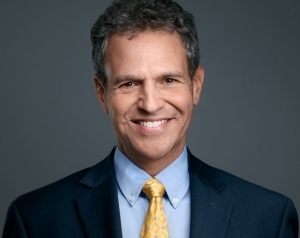The greatest risk to United Nations peace operations is not operational failure, but the growing divergence of opinion among countries that mandate, finance and supply personnel to these operations regarding the purposes and practices of peacekeeping itself.
The UN currently runs 16 peacekeeping missions with roughly 103,000 uniformed personnel and 16,000 civilians – along with another 11 peacebuilding and political missions consisting mainly of civilian personnel. Contrary to those who suggest that UN peace operations are in decline, the chart below shows that business is booming: The number of uniformed personnel deployed on these missions has never been greater (click on image for larger version).

Number of Uniformed UN Peacekeeping Personnel, 1991-2014. Source: UN Department of Peacekeeping Operations.
The problem, however, is that business is literally booming: More and more, peacekeepers are finding themselves in situations where there is no peace to keep and where rebel groups (such as in Democratic Republic of Congo) or insurgencies (such as in Mali) are targeting the peacekeepers themselves.
In response, the UN has increasingly given its missions “robust” mandates to counter such threats and to protect civilian populations who may also be the targets or incidental victims of violence. But this trend has created divisions among the main “stakeholder” countries – those that authorize, pay for, or provide troops to these missions. In a recent blog post, Adrian Johnson of the Royal United Services Institute in London succinctly described the different viewpoints that have emerged:
The P3 (France, the UK and US) and the West are generally not major Troop-Contributing Countries (TCCs), but push for robust, ambitious operations. The P3 also have a strong say over mandates.
African states, which include many major TCCs, have less say over mandates and mission planning. Nevertheless, they are broadly in favour of robust operations; for example, southern African states make up the Force Intervention Brigadein the DRC.
There are more cautious TCCs which also have less say over mandates and the planning of missions, despite several being the largest troop contributors – a long-running complaint. While there is variation in this camp, the concerns of more conservative states such as India, Pakistan and Brazil relate to the abandonment of the core principles of peacekeeping and the principle of respect for national sovereignty. Some also worry that the UN is overextending: in the words of the Indian ambassador to the UN, ‘the Council is effectively endorsing an unsustainable approach to the maintenance of international peace and security’.
Finally, there are sceptical non-TCCs, some of whom, like Russia, are highly concerned by recent trends. A good example of the wider concerns over the direction of peacekeeping is offered by the June 2014 Concept Note presented to the Security Council by Russia, which warned of recent missions’ violation of the fundamental principles of UN peacekeeping.
Bridging these different points of view is important to the future of peacekeeping. Otherwise, decisions about continuing existing missions or deploying new ones are at risk of becoming mired in controversy. This could, in turn, deepen the divisions about peacekeeping more generally, raising the prospect of political paralysis over peacekeeping. That would be a loss: For all their shortcomings, UN peace operations have done a reasonably good job at preventing the recurrence of fighting after wars and protecting civilians in ongoing conflicts.
Against this backdrop, the UN’s secretary-general recently announced the formation of a new “high-level panel” to make a “comprehensive assessment of the state of UN peace operations today, and the emerging needs of the future.” This review, the first of its kind in 15 years, will undoubtedly consider the usual array of operational challenges, including resources, equipment, training, deployment and management of missions. But its most important and toughest task will be a political one: How to reestablish a broad international consensus on the purposes and practices of peacekeeping in the light of changes in the operating environment.









